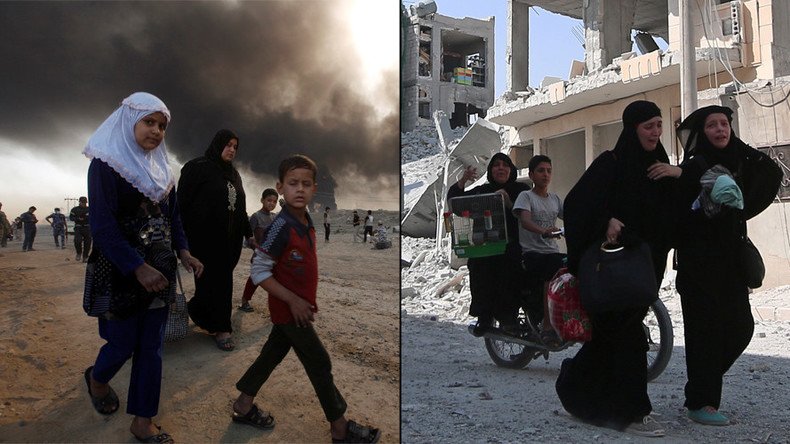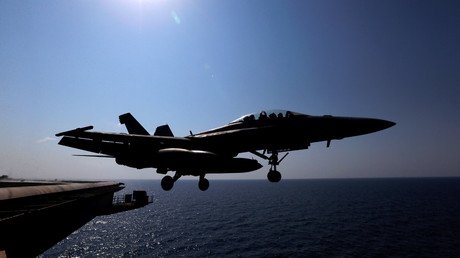Aleppo & Mosul: How Western rhetoric on anti-terror ops changes depending on location (VIDEO)

Despite the two Middle Eastern cities' similar plights, with both of the densely populated areas caught in war with terrorism, Western officials' position on active anti-terror campaigns is apparently different – depending on who is behind the security operations.
The US-led coalition has recently pushed ahead with its assault on the Iraqi city of Mosul, with its population of 1.5 million people, while Russia at the same time has been assisting the Syrian army in fighting militants in Aleppo, a city of 2 million people.
But when US officials comment on battling Islamic State (IS, formerly ISIS/ISIL) in Iraq and the Al-Qaeda affiliate Al-Nusra and its allies in Aleppo, one is a sensible anti-terrorist operation, while the liberation of the other should immediately stop.
"What needs to happen is a cessation of hostilities and the bombing needs to stop," the State Department's John Kirby recently commented on Aleppo.
Speaking about the situation in Iraq, Kirby's colleague from the White House, Josh Earnest said: "The idea that we, that somehow the Iraqi security forces, should delay this operation because of their concern about the humanitarian situation in Mosul doesn't make sense."
BREAKING: Al-Nusra 'not priority' , State Department says as terror group shells civilians in #Syriahttps://t.co/RYI4tMkIaJpic.twitter.com/acO3LHNCUk
— RT America (@RT_America) October 20, 2016
While civilians "shouldn't have to leave" Aleppo through humanitarian corridors, according to Kirby, displacement of civilians in Iraq is seen as "inevitable" collateral damage. "It's not a question of whether we think they should or should not have to leave, but this displacement is somewhat inevitable in operation of this scale," Mark Toner of the US State Department said.
"This fantasy that the West is able to conduct a kind of clean war with no civilian casualties, and it's only the Russians and the Syrians who [harm] innocent civilians is just that - a complete fantasy. The West always tries to sanitize its wars, and make it out as if it can conduct these clean wars in which only bad guys and soldiers and militants get killed - and that's a fantasy," political writer and journalist Dan Glazebrook told RT, adding that "the Western media would rather refocus on horrific scenes in Syria following Russian and Syrian airstrikes than horrific scenes in Iraq following US and British airstrikes."













